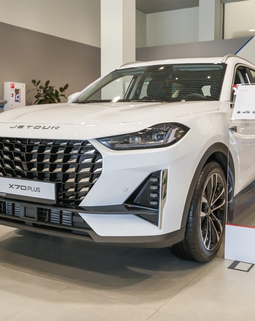The electric vehicle (EV) industry is gaining momentum worldwide as countries strive to reduce carbon emissions and transition to cleaner forms of transportation. Bangladesh, despite being in the early stages of adopting electric vehicles, is beginning to see a shift towards this sustainable technology. This article explores the current state of the electric vehicle industry in Bangladesh, the factors driving its growth, and the challenges that need to be addressed to ensure a successful transition.
Early Adoption and Market Growth
Bangladesh’s electric vehicle market is still in its infancy, with a limited number of EVs on the road. However, there is growing interest among consumers, especially in urban areas, driven by the need for more efficient and environmentally friendly transportation options. The introduction of electric three-wheelers, commonly known as "easy bikes," has been particularly successful, providing an affordable and eco-friendly alternative to traditional fossil-fuel-powered vehicles. These easy bikes are now a common sight in many cities and towns across Bangladesh, signaling the beginning of a broader acceptance of electric vehicles.
Government Initiatives and Support
The Bangladeshi government has recognized the potential of electric vehicles in addressing the country's environmental and energy challenges. As part of its commitment to sustainable development, the government has introduced several initiatives aimed at promoting the use of EVs. These include reducing import duties on electric vehicles, offering tax incentives, and investing in the development of charging infrastructure. Additionally, the government is working on policy frameworks that will further support the growth of the EV industry, including setting targets for EV adoption and creating standards for vehicle manufacturing and safety.
Environmental Concerns
One of the primary drivers of electric vehicle adoption in Bangladesh is the growing concern over environmental pollution. With rapid urbanization and increasing vehicle ownership, air quality in major cities like Dhaka has deteriorated significantly. Electric vehicles, which produce zero tailpipe emissions, offer a solution to this problem by reducing the levels of harmful pollutants in the air. The shift towards EVs is seen as a critical step in improving public health and addressing the environmental impact of transportation.
Economic Considerations
Economic factors also play a crucial role in the adoption of electric vehicles in Bangladesh. The rising cost of fossil fuels and the country's dependence on imported oil have made electric vehicles an attractive alternative for cost-conscious consumers. Although the initial purchase price of EVs can be higher than that of conventional vehicles, the lower operating costs, including reduced fuel and maintenance expenses, make them more economical in the long run. This economic advantage is particularly appealing in a price-sensitive market like Bangladesh.
Technological Advancements
Technological advancements in electric vehicle design, battery efficiency, and charging infrastructure are making EVs more accessible and practical for Bangladeshi consumers Advancements in battery technology have resulted in extended driving ranges and reduced charging times, alleviating many of the concerns that previously hindered the adoption of electric vehicles. Moreover, the growing network of charging stations nationwide is simplifying the recharging process for EV owners, further promoting the transition to electric mobility.
Infrastructure Development
One of the most significant challenges facing the electric vehicle industry in Bangladesh is the lack of adequate charging infrastructure. While the government has taken steps to address this issue, the current network of charging stations is still insufficient to support widespread EV adoption. Expanding the charging infrastructure, particularly in rural areas, is essential for ensuring the convenience and reliability of electric vehicles. Without a robust network of charging stations, consumers may be hesitant to make the switch from traditional vehicles to EVs.
High Initial Costs and Limited Consumer Awareness
Despite the long-term economic benefits of electric vehicles, the higher upfront cost remains a barrier for many consumers in Bangladesh. Additionally, there is still limited awareness and understanding of the benefits of EVs among the general public. Educational campaigns and financial incentives, such as subsidies or low-interest loans for EV purchases, could help overcome these challenges by making electric vehicles more affordable and increasing consumer confidence in the technology.
Government Policy and Industry Collaboration
The future of the electric vehicle industry in Bangladesh depends heavily on continued government support and collaboration with the private sector. By creating a favorable policy environment, including incentives for local manufacturing and research and development, the government can stimulate the growth of the EV industry. Additionally, partnerships between government agencies, private companies, and international organizations can help accelerate the development of necessary infrastructure and promote innovation in the sector.
Expanding the Market Beyond Urban Areas
While the initial focus of EV adoption has been in urban centers, there is significant potential for expanding the market to rural areas. Electric two-wheelers and three-wheelers, which are already popular in cities, could become viable transportation options in rural regions where conventional fuel stations are scarce. By expanding access to electric vehicles across the country, Bangladesh can achieve a more equitable and sustainable transportation system.
Conclusion
The electric vehicle industry in Bangladesh is poised for growth, driven by environmental concerns, economic considerations, and technological advancements. However, challenges such as infrastructure development and high initial costs must be addressed to ensure the successful adoption of EVs. With continued government support, industry collaboration, and public awareness, Bangladesh can transition towards a more sustainable and environmentally friendly transportation future, positioning itself as a leader in the region's green mobility movement.





